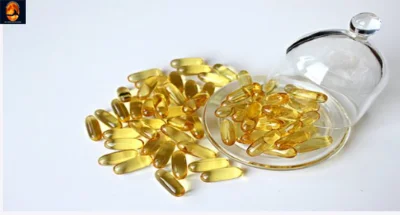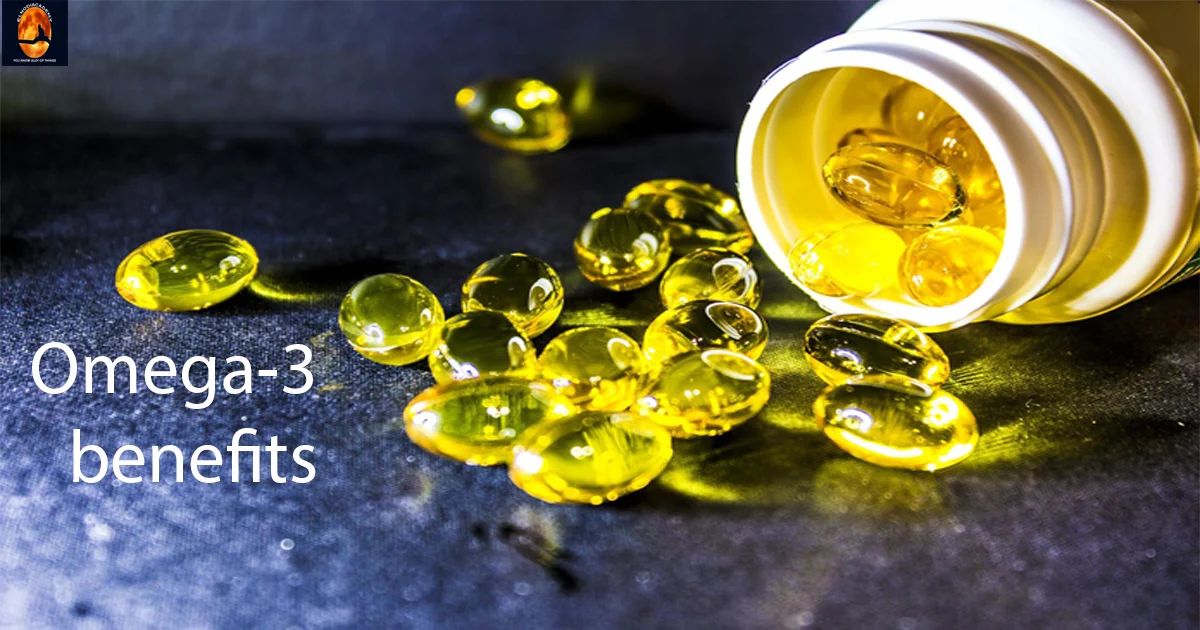What is omega-3?
A class of polyunsaturated fats called omega-3 fatty acids is well-known for its many health advantages.
DHA and EPA, two crucial omega-3, are mostly found in oily fish like salmon, mackerel, and sardines.
Linseeds, pecans, hazelnuts, and walnuts are high in another type of omega-3 benefits referred to as ALA, which is converted by your body into DHA and EPA, so you don’t have to miss out if you don’t consume fish.
Omega-3 Benefits for weight loss
There are many studies that show the effect of omega-3 on weight loss, in a systematic review of 8 studies published in the Journal of Functional Foods in 2019, we showed that its anti-inflammatory properties may contribute to reducing obesity.
While research showed Preliminary that the consumption of DHA by overweight or obese women reduces the consumption of carbohydrate and fat sources, it does not contribute to their weight loss.
The journal PloS One showed in a statistical analysis of 51 studies, published in 2015, that consuming omega-3 supplements, along with making lifestyle modifications, may contribute to reducing abdominal fat or reducing waist circumference, however, there is a need to do more From clinical research to get more accurate results.
In one of the preliminary studies conducted on mice, published in the journal Biochemistry and Cell Biology in 2019, we found that omega-3 benefits fatty acids may reduce visceral fat in obese mice, and reduce changes resulting from eating rich meals.
It does not affect the consumed quantities of food or weight; omega-3 is high in calories, which may lead to weight gain when consumed in excessive quantities.
Omega-3 Benefits for bodybuilding

Many studies and research point to the benefits provided by omega-3 benefits in bodybuilding; Where a review published in the journal Marine Drugs in 2015 mentioned some laboratory and animal studies that showed that consumption of omega-3 benefits from their food sources can affect the metabolic processes in skeletal muscle, and added that human research revealed the effect of its consumption on the metabolic response to nutrients in muscles.
A review published in the European Journal of Translational Myology in 2017 mentioned structural, as well as functional responses to exercise performance, and it included bodybuilders; Consumption of omega-3 benefits has contributed to the improvement of their cardiovascular health, And Nutrients magazine published 2019 a review stating that the intake of omega-3 benefits by athletes; Whether through its food sources or its supplements.
It can improve their athletic performance, and relieve the physiological stress that accompanies a set of symptoms; such as inflammation, immune disorders, and oxidative stress.
Omega-3 Benefits for depression
In 2011, The American Journal of Clinical Nutrition published an observational study showing that consumption of alpha-linolenic acid reduced the risk of depression, and also showed that women who consumed less linoleic acid were more responsive to the effect of alpha-linolenic acid in reducing depression.
Despite these results, we need more research to get more accurate results in this field.
Omega-3 Benefits
1. Better sleep
Apparently, taking enough omega-3 benefits may help you sleep better because better sleep leads to better living.
Sleep apnea in adults, sleep issues in kids, and reduced amounts of the hormone melatonin—which promotes sleep—have all been linked to low levels of omega-3.
According to one study, youngsters who took an omega-3 benefits supplement slept longer and woke up less frequently at night. Scientists believe omega-3 benefits could have comparable effects on adults.
The nutrient omega-3 benefits aid in the body’s production of melatonin, a hormone that aids in sleep.
2. hydrate your skin.
DHA, an omega-3 benefits fatty acid, plays an important structural role in maintaining the health of your skin. It supports the cell membranes that make up a sizable portion of your skin.
Skin membranes that are in good health have a softer, more supple, and more hydrated appearance.
To help regulate your skin’s oil production, the omega-3 benefits EPA also keeps it moisturized.
3. keep your blood pressure normal.
We have also discovered that omega-3 benefits fatty acids and support normal blood pressure maintenance.
They may help blood vessels expand, reducing the need for the heart to pump blood around the body as vigorously. They may be linked to a lower risk of stroke for this reason, among others.
4. bolster memory
We believe the DHA present in omega-3 benefits fatty acids and improves the communication between nerve cells.
Frequently lose track of where you put your keys? According to research, taking fish oil supplements for six months can help you remember things better.
5. Maintaining eye health
Around 93 percent of the omega-3 benefits fatty acids in your retina are DHA, which contributes to the formation of both the brain’s grey matter and the retina of your eye.
Not getting enough could affect your vision in some negative ways.
Macular degeneration, which is the most common type of blindness in elderly people, could be slowed down with its help.
Although DHA cannot repair retinal damage, research shows it might support clear vision.
6. Assist developing brains
During the third trimester and until the child reaches the age of 18 months, omega-3 benefits fatty acids are essential for the development of the baby’s brain and eyes.
especially DHA, which accounts for roughly 97 percent of the brain’s omega-3 fatty acids.
Pregnant women should consume enough omega-3 benefits, according to the British Nutrition Foundation, but there are some limitations on where they can get it from.
However, they can also get omega-3 benefits from other sources, such as foods like eggs that have been fortified with DHA.
Supplements are also acceptable as long as you make sure they are safe for expectant mothers and don’t contain a lot of vitamin A.
7. Ease PMS
Do you experience mood swings, crying, or anxiety every month, right before your period begins?
Omega-3 benefits may be beneficial; studies have shown that taking a supplement may lessen the psychological symptoms of PMS and may also help with bloating and breast tenderness.
8. Support during menstruation
When they are bleeding during their period, many women feel pain, especially in the lower abdomen and pelvis, which can radiate down to the thighs and lower back.
Women who consume the most omega-3 benefits have been found in many studies to report milder menstrual discomfort.
9. Aid for Anxiety
One of the most prevalent mental health conditions is anxiety, and omega-3 may have a role.
Anxiety is a condition that causes persistent trepidation and worry.
Studies have shown that omega-3 supplements may help people who are showing signs of anxiety.
10. Joint wellness
Fish oil containing omega-3 may help keep joints flexible. Better joint health is related to higher levels of omega-3 in our synovial fluid, the thick, colorless fluid that lubricates our joints.
Fish oil with omega-3 benefits

You can also get additional vitamins by consuming oily fish supplements or oily fish like salmon and trout when getting your omega-3s.
The body receives a full spectrum of omega-3 fatty acids from omega-3 fish oil along with additional vitamins D and A.
Vitamin D, which supports the health of our teeth, bones, cells, and immune system aids calcium absorption.
Besides promoting healthy skin, eyes, and immune system function, vitamin A also aids in the body’s utilization of iron.
Omega-3 in salmon
Typically, when people think of oily fish, they think of salmon. However, can you really get enough omega-3 from salmon?
Yes! Omega-3 content in 100g of cooked farmed Atlantic salmon is approximately 2260 mg.
Salmon would be a good option if you follow the Association of UK Dieticians’ recommendation to eat one portion of oily fish per week.
Other omega-3-rich oily fish include:
- Mackerel
- Herring
- Oysters
- Sardines
- Anchovies
- Caviar
Omega-3 for vegans and vegetarians

There are some fish-free ways to get omega-3 fatty acids, so don’t worry if you’re vegetarian, vegan, or just don’t like oily fish.
The following are some of the top vegan and vegetarian sources of omega-3:
- Chia seeds
- Walnuts
- Soybeans
- Pastured eggs
- Hemp seeds
- Dairy products
- Algal oil
- Spirulina
- Chlorella
Omega-3 side effects Alpha-linolenic acid side effects Alpha-linolenic acid safety grade
Consuming alpha-linolenic acid in the quantities available in food is often considered safe, but there is not enough information about the safety of its consumption in high quantities.
For pregnant and lactating women, the consumption of alpha-linolenic acid in the quantities found in food is considered safe mostly, but there is insufficient information about the safety of taking it in large quantities during pregnancy and lactation, and therefore it is recommended not to take its supplements during these two periods.
Contraindications to the use of alpha-linolenic acid
We recommend not consuming alpha-linolenic acid sometimes, which is explained:
High levels of triglycerides in the blood: Taking supplements of this acid may negatively affect the health of people who have high levels of triglycerides.
Increased risk of prostate cancer: Some evidence suggests that acid supplements may increase the risk of prostate cancer, so patients with or at risk of developing it are advised not to consume alpha-linolenic supplements.
Eicosapentaenoic acid side affects Eicosapentaenoic acid safety grade
Eicosapentaenoic acid is mostly safe for most adults to consume, and we can use safely it for up to 7 years, but it may cause some minor side effects that can be reduced by consuming it with meals, including; Diarrhea, nausea, belching, and pain in the upper abdomen.
Specialists have shown that getting this acid intravenously is likely to be safe for most people, and consuming it in an amount greater than 3 grams per day is potentially unsafe.; It may slow blood clotting and increase the risk of bleeding.
We should note that there are some cases that must be taken with caution when consuming eicosapentaenoic, such as pregnant and lactating women, where it is recommended to avoid consuming acid in quantities exceeding those in food during these periods; This is because of the lack of sufficient studies on the safety of consumption by pregnant and breastfeeding women.
Contraindications to the use of eicosapentaenoic acid
Despite the many health benefits that eicosapentaenoic acid provides to the body; However, caution should be exercised when consuming it sometimes, among which we mention:
- People with arrhythmia
- This acid may increase the risk of arrhythmia in people who have a history of heart arrhythmia, so we recommend it to consult a specialist before consuming it in patients with this disorder.
- People who are allergic to aspirin
- Eicosapentaenoic acid may cause respiratory problems in people who are allergic to aspirin.
- People with high blood pressure
- we recommend it to consult a doctor before starting the consumption of eicosapentaenoic for patients who suffer from high blood pressure; This is because taking it along with blood pressure-lowering drugs may cause a severe drop in its levels.
Docosahexaenoic acid side affects Docosahexaenoic acid safety grade
Docosahexaenoic acid is generally considered safe for most adults and can be taken for up to 4 years. However, it may cause minor side effects related to stomach and intestine problems, and taking it intravenously is likely to be safe if it is injected with EPA for a short period, and it should be noted that consuming it in an amount exceeding 3 grams per day is unsafe
As it may cause inhibition of the blood clotting process and a high risk of bleeding, we mention following the degree of its safety sometimes:
Pregnant and breast-feeding women
Oral intake of DHA in quantities during these two periods is mostly safe, and it is usually used during pregnancy, as it is added to prenatal vitamins, and it is also one of the natural ingredients to be added to your breast milk, as well as to breast milk.
A nursing woman can also consume it after consulting a doctor, as it increases her milk production.
Babies and Babies
Providing children with an appropriate amount of DHA is considered safe in most cases. Children aged 4 years and over can consume it in an amount ranging between 0.4-1 g per day for up to one year, and providing it to premature babies less than 29 weeks of age.
Pregnancy is potentially unsafe and may increase respiratory problems for premature infants who have difficulty breathing.
Contraindications to the use of docosahexaenoic acid
We should take caution when consuming DHA sometimes:
- People with aspirin allergy
- taking it may cause breathing problems in people who are allergic to aspirin.
- People with low blood pressure
- taking it may increase the risk of a sharp drop in blood pressure in people who suffer from low blood pressure, and we should also note that its consumption with antihypertensive drugs by people with high blood pressure. It may cause their levels to drop dramatically.
- People with diabetes
- because its consumption may raise the level of sugar in the blood in patients with type 2 diabetes.
- We should also note that the consumption of DHA along with Eicosapentaenoic acid from its food sources in an amount exceeding 3 grams per day may increase the risk of bleeding. Anticoagulants – some of which are mentioned in the drug interactions section of this article – can increase the risk of bleeding and bruising.
Does Omega 3 cause liver damage?
Omega-3 metabolism occurs in the liver, and it is degraded into short-chain fatty acids through the process of fatty acid oxidation (in English: Beta oxidation), which has little effect on the group of enzymes that catalyze oxidation, such as cytochrome P450 oxidase enzymes, or in transporters Medicines, as for their effect on triglyceride metabolism; These effects often provide health benefits to liver cells and outweigh the damage caused by them.
Many types of research showed the limited side effects of consuming omega-3 acids in the liver, and the lack of confirmed evidence about the relationship of its consumption to a high level of enzymes in the blood, or liver injury.
Using high doses Of Omega 3 to treat a group of patients with hypertriglyceridemia, about 12% of them are associated with a slight increase in the enzyme’s level that shows liver injury, alanine aminotransferase, or for short, ALT, but this effect does not differ from the other group that did not consume this The amount of omega-3, however, these simple and uncertain effects were not associated with symptoms of the disease, or the occurrence of cases of jaundice, or jaundice.
drug interactions with omega-3 fatty acids
There is no information about the drug interactions of alpha-linolenic acid yet, [6] Eicosapentaenoic acid and DHA interact with some medications:
- High blood pressure drugs
- or antihypertensive drugs, such as Captopril, Enalapril, Valsartan, Furosemide, and others, which interact Both acids with these medications; Which lead to a sharp drop in the patient’s blood pressure level.
- Drugs that inhibit blood clotting
- are known as anticoagulants, as taking one of the two acids along with these drugs may increase the risk of bleeding and bruising examples of these drugs are; Aspirin, ibuprofen, warfarin, and others.





